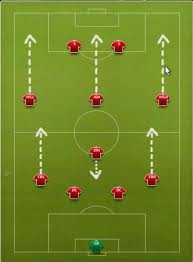 What’s the difference between a strategy and a tactic?
What’s the difference between a strategy and a tactic?
The obligatory post-padding dictionary definitions here and here 😉
But, let me give you a personal finance example or two to explain why it’s critical that you know the difference!
If you spend some time on google, you will find whole blogs dedicated to “financial strategies” such as:
– managing your credit cards,
– eliminating debt,
– paying yourself first,
– building an emergency fund,
… and, so on.
Each blogger (or author – there’s been whole books written on each subject) will explain how his financial strategy will turn your life around.
But, these are not strategies at all … they are tactics, a means to an unknown end.
I’ll explain why …
For each of these tactics (or any other), I can give you a perfectly valid argument for why you should do the exact opposite of what the author recommends!
Here are couple of examples:
– The False War On Debt: http://7million7years.com/2010/11/10/the-war-on-debt/
– The Zero Dollar Emergency Fund: http://7million7years.com/2010/08/08/the-zero-dollar-emergency-fund-2/
… and, if you go back through my blog [AJC: an easy way is to just search for the word “myth”] you will find counterpoints to all of these – and other – ‘recommended’ financial tactics.
The reason is that I have a personal financial strategic goal: I knew exactly where I wanted to be ($5 million), when I wanted to get there (5 years) and why.
[AJC: for an audacious goal, you need a very strong ‘why’ to help drive you there … it’s a very tough road, and you’ll need all the emotional ‘boost juice’ that you can get! This is one of my earliest posts; you should read it: http://7million7years.com/2008/03/07/fire-up-your-true-passion-hot-passion-drives-massive-action-massive-action-drives-incredible-results/].
With such a goal, I needed certain financial strategies to get there [AJC: I actually ended up with $7million in 7 years]; my strategy was:
– Increase my income dramatically (for me that was achieved by quickly growing my business),
– Invest as much of that income as possible in real-estate and stocks (instead of spending my business profits on bigger houses and faster cars).
Therefore, the tactics that I needed included:
– Take on as much debt as possible,
– Buy insurance and have lines of credit available (instead of having cash lying around idle) in case of emergency,
– Paying myself first, second, third and fourth (i.e. saving much more than 10% of my business-generated income),
– Obeying the 20% Rule.
So, next time you are looking for financial advice, take the trouble to understand your strategic goal: how much do you want? when do you want it? and, why?
If your goal is simply to retire with $1 million in 40 years, then go ahead and buy that Kindle and load it up with personal finance best-sellers!
However, if your goal is “large and soon” then you, too, will need to ignore most of the so-called “good financial advice” that is floating around so freely. That’s why I started writing this blog 🙂





In other words you need to know where you want to go before you figure out how to get there.
I think you are right Adrian in that most people focus on tactics and not strategy, and most financial advice is purely tactical.
That doesn’t always mean it is bad, it just means that it assumes a strategy (like have no down debt). Minimzing “bad debt” is good strategy and uses similar tactics to get there as “have no debt”.
@ Neil – I think that “minimizing ‘bad debt'” is either a good or bad TACTIC depending upon what your STRATEGY is.
If your strategy is, for example, to retire in 20 years on whatever happens to be in your 401k, then having all of your debt paid off before then is probably a good tactic.
However, if your strategy is to retire in (say) 10 years with (say) $3million by aggressively building your asset base with income-producing investments, for example, then eliminating all of your debt, no matter how “bad”, is probably a bad tactic as it will limit you to buying investments with cash.
I am also a multimillionair and speak from personal experience of my 38 years of life. I am personally amazed and surprised at the power of a WRITTEN goal.. write it down.. for big financial goals i started writing them when I was about 22 and had my first real “job” out of college. I think I wrote down my financial goals for my targeted net worth for the next 5 years… Guess what I achieved them… then I did it again at 27 for the next 5 years … guess what I achieved them they were all written (and they were big goals) … I kept doing that now Im 38 and look back to learn how important it is to write them down… clearly and make them achievable but make them a stretch… they have to be written. I personally write them as a goal for each year for the next 5 years… Example by 38 i target X net worth, 40 X net worth, 41 X net worth etc… It works try it and look back… be realistic but make it a stretch and review it.. Review the chapter in the book think and grow rich it talks all about this and my experience is it WORKS… here is a FREE link to think and grow rich.. Read this for the first time when I was 37, wish I read it when I was 22 I might be worth double what I am today…. http://www.2ezbiz.org/TGR.pdf